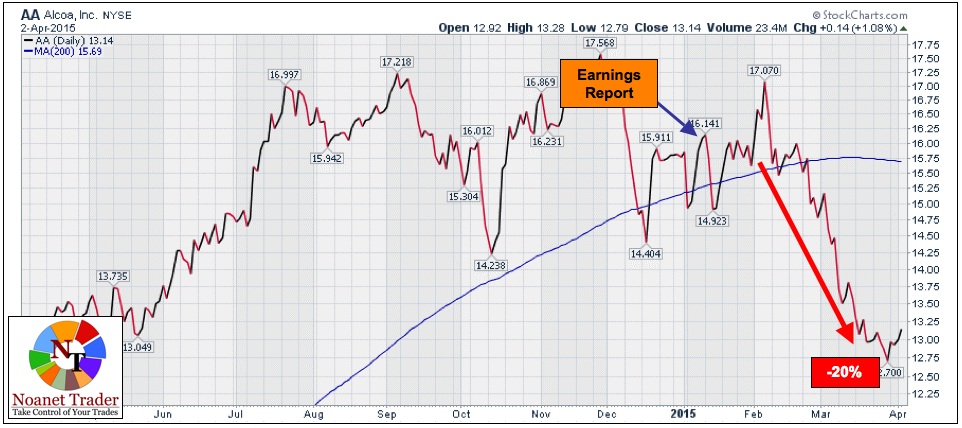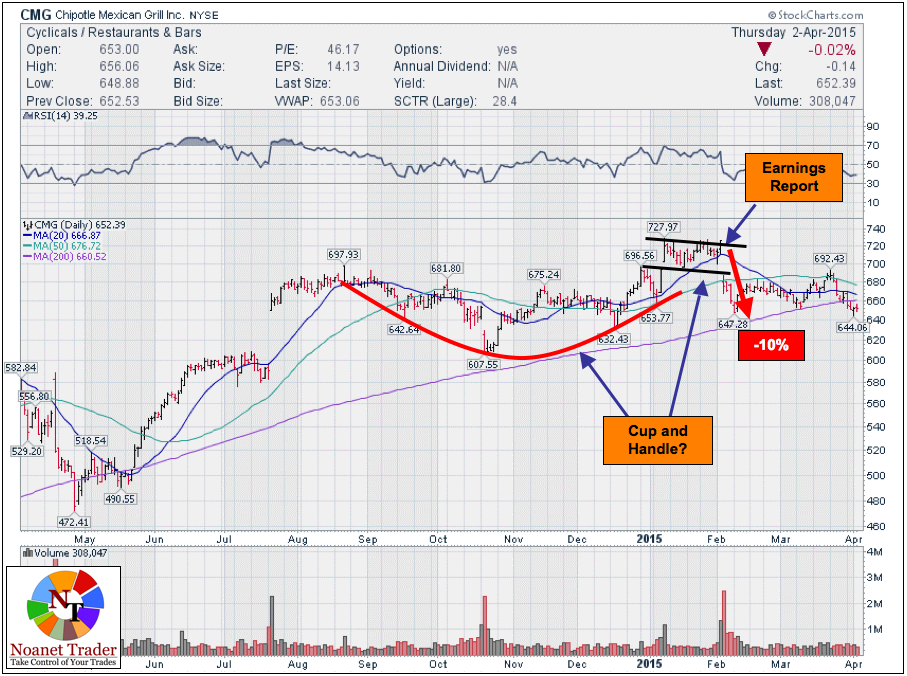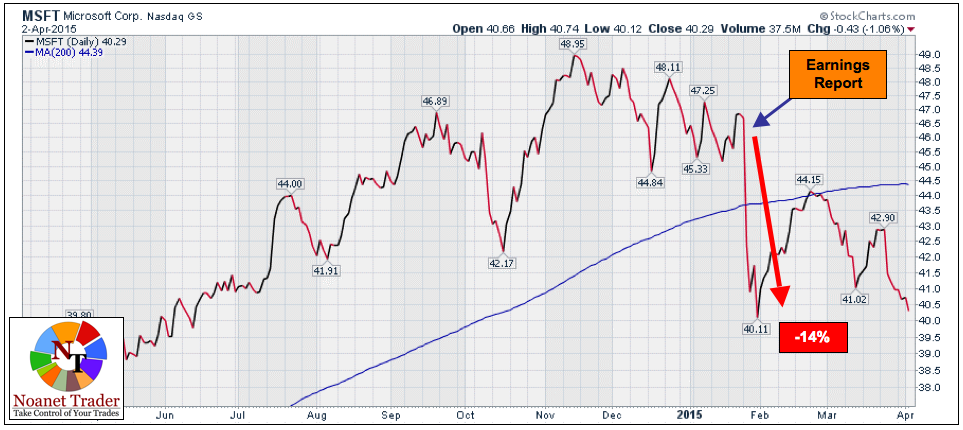(Note: This article was originally published on April 6, 2015 on www.seeitmarket.com)
A new earnings season is starting this week and so is everyone’s favorite guessing game: analysts, pundits, journalists, and bloggers all trying to predict what each company will report and what the stock will do in the aftermath.
Consequently, articles like this can be seen everywhere: KBW Says Get Long Goldman Sachs (GS), Citigroup (C) Into Q1 Earnings
They are written by smart, hard-working people and are full of insightful analysis and compelling points.
Unfortunately, their overall reliability seems inversely proportional to the amount of effort involved in their creation.
Forecasting or “guessing” what each company will report is hard enough. Most companies try to gently guide the investing community in an effort to avoid surprises. As a result, reported numbers are often close to analyst estimates but still far from immune to missing expectations.
The complexity of the guessing game increases exponentially when it comes to trying to predict a stock’s price reaction following the earnings report. Every season, there is no shortage of stocks that do the unexpected, including the ones that rally following a terrible earnings report as well as those that sell off after a great one.
Technical analysts who think that stock charts can somehow predict the future are also often surprised by the price action following earnings.
There are many examples of this in every earnings season, but let me give you just three from the most recent one to help illustrate what I mean.
Alcoa - "History of Trouncing Estimates"
Alcoa Inc. gets a disproportionate amount of attention during every earnings season primarily because it is among the first companies to report.
A few weeks before January's report, this article was among the most bullish: "AA: Buy Alcoa for Additional Earnings Beats"
It outlined a very compelling case for Alcoa and some of the key points were:
- "...there is still plenty of room left for AA to grow."
- "...analysts are having a hard time putting a ceiling on Alcoa's profit potential. "
- "Alcoa has a history of trouncing analyst estimates..."
The article was basically correct. Alcoa's actual report did exceed estimates: Expectations were for EPS of $0.29/share on $6 billion in revenues, which the company handily beat, delivering $0.33/share on $6.40 billion.
However, it was the stock's price reaction that was a surprise to the Alcoa bulls.
Alcoa stock sold off sharply for two days following the earnings, made a feeble attempt to rally in early February, but then rolled over and dropped more than 20% through early April (see chart below).
Chipotle - "Likely to Pop"
Chipotle Mexican Grill has been one of the favorites of the investors and traders alike and with a good reason: the stock has more than doubled in the last two years on the strength of Chipotle's business model.
Heading into early February's earnings report, Chipotle was again expected to deliver a positive surprise, at least according to Zack's earnings surprise model as quoted in the article titled "How To Trade Chipotle Before Earnings."
Further encouraging to the bulls was CMG's technical price structure. The daily chart had an almost textbook "Cup and Handle" pattern, which is traditionally bullish and indicates strong odds of an upside breakout.
All of these fundamental or technical expectations went unsatisfied as the stock dropped some 10% following the earnings report, partly on concerns over food costs.
Microsoft's "Cloud Growth"
After moving largely sideways for more than a decade, Microsoft woke up in 2013 and rallied almost 70% in two years.
Before this January's earnings report, expectations were very high due to an ongoing revival of the PC industry, new CEO, and the company's much touted move into cloud-based services.
The Street summed up this sentiment well with a bullish article called "Microsoft's Stock Is a Buy Before Earnings on Cloud Growth."
The bulls and those buying before earnings were disappointed as Microsoft did not live up to expectations and the stock declined some -14% following the report.
Future is a "Known Unknown"
The future is impossible to predict. This is something we all know but sometimes choose to ignore.
Fundamental analysts mistakenly believe that correctly estimating the numbers a company will report will also reliably predict the stock’s price reaction. As we have seen above, the relationship between an earnings report and subsequent stock price action is a lot more complex.
Technicians are not innocent on this front: many believe that charts have predictive qualities even for a fundamental event like earnings. They don’t. Charts and all the fancy technical indicators are simply a graphical representation of aggregate expectations.
Given the above, it seems foolish and maybe even irresponsible for anyone to recommend taking a position (long or short) into an event like earnings.
It is equally foolish and irresponsible for any investor or trader to take such a recommendation, so please keep this in mind during this (and every) earnings season.
Recent free content from Noanet Trader
-
 Ignoring the Greco-German Noise
— 6/21/15
Ignoring the Greco-German Noise
— 6/21/15
-
 June 18 Recap
— 6/18/15
June 18 Recap
— 6/18/15
-
 All Eyes on the Russell
— 6/14/15
All Eyes on the Russell
— 6/14/15
-
 Preparing for June
— 5/31/15
Preparing for June
— 5/31/15
-
 Preparing for the Week of May 18
— 5/17/15
Preparing for the Week of May 18
— 5/17/15
-
{[comment.author.username]} {[comment.author.username]} — Marketfy Staff — Maven — Member




